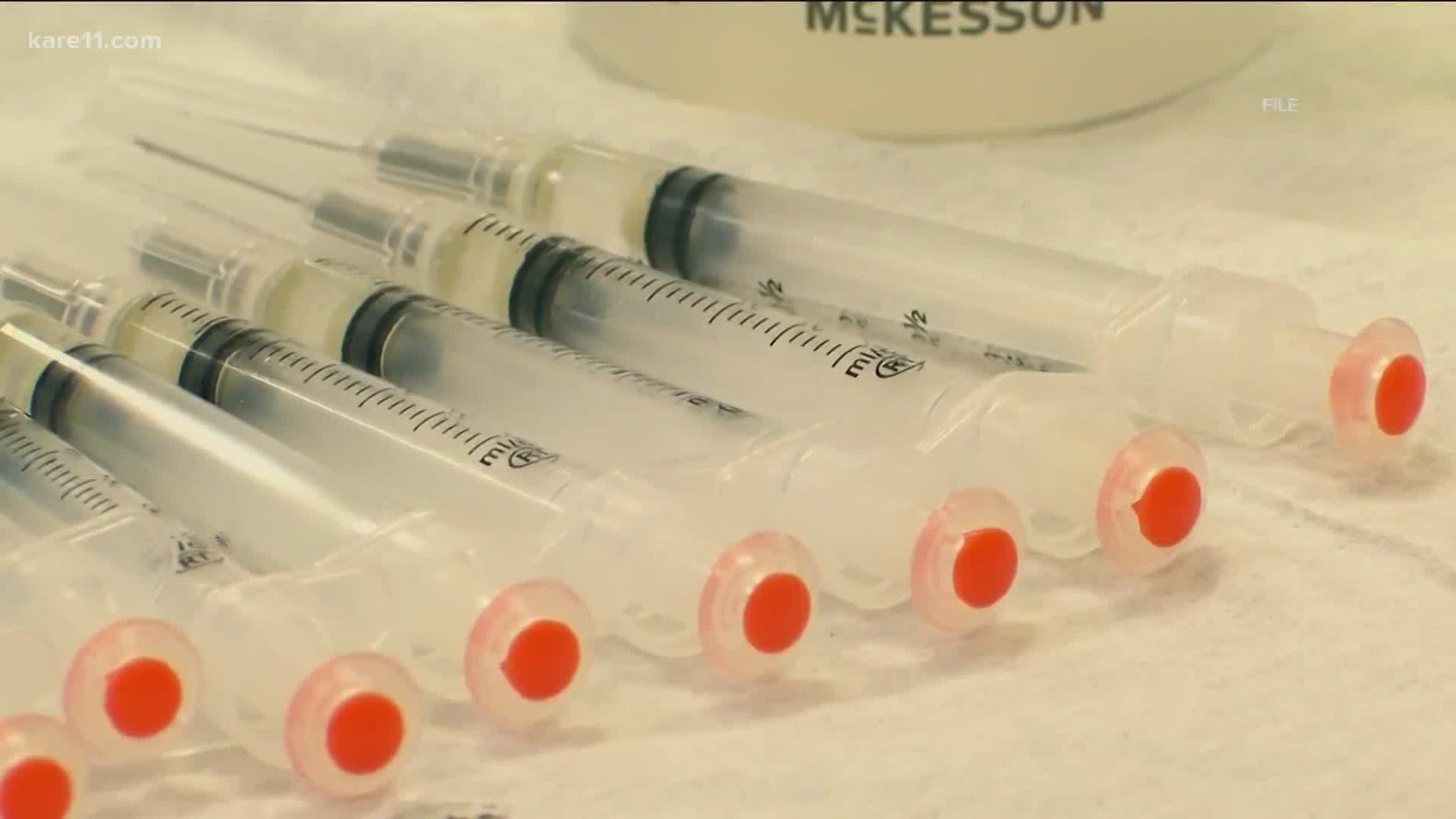It can be confusing to sort through all the data and advice surrounding COVID-19 and especially the vaccines to try and prevent it.
KARE 11 is taking some of your questions to a physician who was recognized as one of Minnesota's "top doctors" in the magazine Minnesota Monthly.
Dr. Abe Jacob oversees quality and safety for the entire M Health Fairview system and he says that role has taken on increasing importance due to COVID.
We asked him several questions, including one Keith Mailer recently sent by email about when most Minnesotans will get the vaccine.
"I wouldn't be surprised if in the next four weeks if a lot of the health systems didn't have larger vaccination operations up and running to take care of patients," said Dr. Jacob.
Even that though depends on whether the federal government gives Minnesota more weekly doses. The state is usually allocated about 60,000 doses.
Viewer Claire Avitabile also emailed and asked what is the definition of underlying conditions. Remember, new CDC guidelines mean people with those are now eligible for vaccination.
"That could include age, clearly anyone over the age of 65, anyone with underlying cardiac conditions or poorly controlled diabetes or neurological conditions," explained Dr. Jacob. But he also added, "It's still not clear how we want to identify it and want to validate whether it's true."
Dr. Jacob said it would be best and most efficient if health systems that already had that patient information were in charge of coordinating vaccinations for people with underlying health conditions. That group, ages 16-64, make up about 40% of Minnesota's population, according to the Minnesota Department of Health.
On Facebook, Lori Jeanne hopes hospitals are also reserving second doses of vaccine. While the doctor says that limits vaccinating more people more quickly, he also says giving out more doses isn't ideal either.
"So there is a risk that if I got one dose a couple weeks ago and didn't get my booster that my immunity could wain and then we're doing this all over again in a few months," said Dr. Jacob.
In another email, Steve McNattin wondered what's the shelf life of the current vaccines. Kept in its required deep freeze, the Pfizer vaccine can last six months - but there's more.
"If you just stick the Pfizer vaccine in a regular freezer or just below freezing, then it can last about 5 days," explained Dr. Jacob. "But once it's at room temperature and it's diluted, then it can only last for a few hours."
The Moderna vaccine is more flexible.
"You don’t have to have a deep freeze, more like minus 20 degrees Celsius," said Dr. Jacob. "If you have that capability, it can last for 6 months and once it’s thawed it can sit in a regular fridge for about 30 days."
Dr. Jacob is asking people to be flexible as well, as experts work as efficiently and safely as possible in these unprecedented times.

